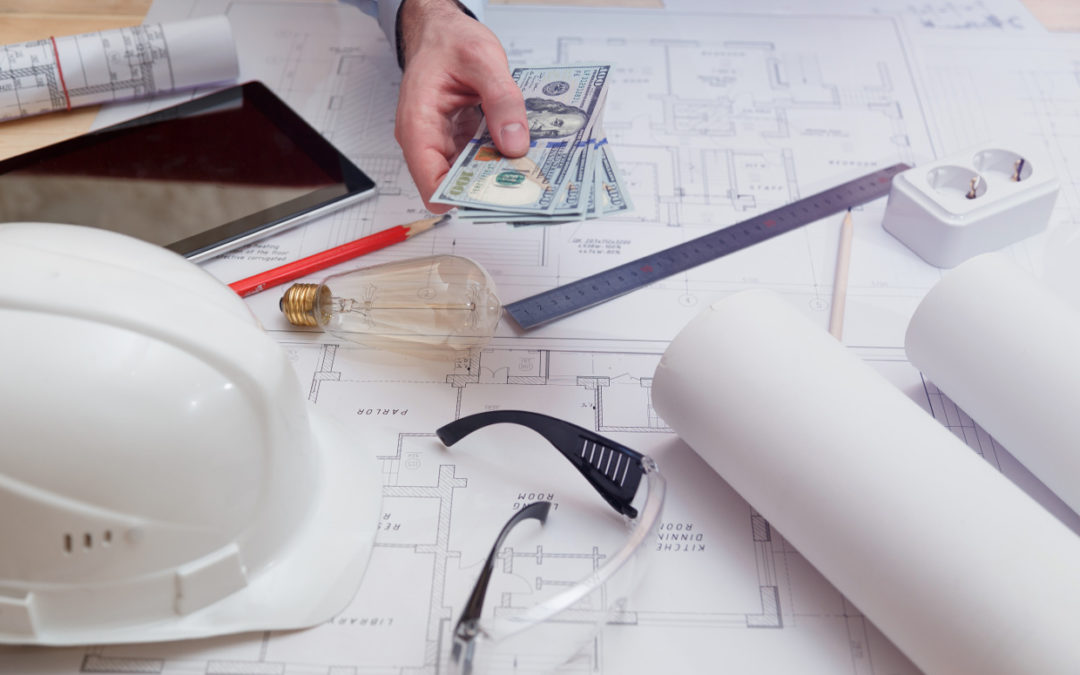Successful business owners are always thinking ahead to the next step. Once you’ve got your establishment up and running, and people are coming in the doors, the logical question is where do you go from there? Some consider expanding to a second location. Some owners consider adding on to their existing buildings. Some renters evaluate whether buying land and building from the ground up is the right way to go. If you are considering one or more of these options, one things for certain: you’re going to need capital to do it. New construction can be very, very expensive. This is where the idea of a construction loan comes in. Sure, you might think about renting an existing place, but with rental prices going up, doesn’t building your commercial property seem like the right way to go?
What is a Construction Loan?
You might think that adding another building means just getting another property loan, but nothing could be further from the truth. Instead of dealing with property loans, new construction is financed through a special type of loan called a construction loan. This loan plays by a slightly different set of rules which ultimately work to benefit both the lender as well as the business owner looking to borrow.
How is a Construction Loan Different?
Construction loans are different than regular property loans in several important ways.
Paying Out
First, a construction loan doesn’t simply pay out the entire loan in a lump sum. With a standard property loan, however much you need to borrow is handed over, and then you immediately start repayment. Because construction costs roll out over the life of a project, each phase having a unique cost, the money is not all handed over at once. Rather, the money is handed over as the project begins different phases.
So, the first draw of the loan might happen when the clearing of the land begins. At that time, only the money necessary for that phase of the construction project changes hands, while the rest waits until later. When that phase is over, and the next begins — say, the pouring of the foundation — the next chunk of the loan gets paid out. Because project budgets rarely stay on target, doling out the funds like this helps protect the lender from borrowing more than he or she ultimately needs.
Paying Back
Another way a construction loan is different is in how it’s paid back. Typically, when the project is still under construction and the full amount of the loan has not been paid out, the borrower is only responsible for the amount that has actually been paid. So, if your total loan is for $250,000, but you’ve only received $50,000 of that money, you are only on the hook for that smaller amount.
In addition, until the loan is finished, most construction loan terms only require you to pay on the interest of the loan. So, in the scenario mentioned earlier, you would only be paying interest on that $50,000, and not paying back any of the principle.
Paying Off
One final difference with most commercial construction loans is what happens afterwards. Instead of worrying about having to pay back the construction loan with its possibly higher interest rates, many owners will then take out a mortgage on their newly constructed property, using the property as collateral. They then use the money from the mortgage to pay off the construction loan completely, and then settle into the terms of their new loan over the long haul.
What are the Qualifications for a Construction Loan?
Getting a construction loan is, in many ways, similar to any other loan. First, it will be necessary to have a down payment of somewhere between 10% and 30% of the total cost of the project. This percentage varies depending on the lender’s specific terms as well as other factors, but it’s a safe bet to assume you will have to put down something to secure the loan.
Lenders will also check various numbers, such as your credit score and your debt-to-income (DTI) ratio. A better credit score naturally leads to better interest rates. There might also be various fees to pay, depending on the lender’s individual policies.
One more thing that will most likely be required is a construction plan. Just as you need a business plan to secure a loan to start your business, you will need construction plans to show any potential lender before they make a decision. These plans will include specifications and designs as well as estimated project costs that take into account a large number of possible scenarios that could impact the duration (and cost) of the project.
In short, if you are looking to expand your business by building another location or adding on to an existing one, you’re going to need a lot of money to do so. Commercial construction loans are a great way to help you finance your new projects without throwing your business into jeopardy to do it.
We have the experience and connections to lenders to help you fund your business growth. Talk with our brokers and we will start with an assessment of your business, your costs and your opportunity.

